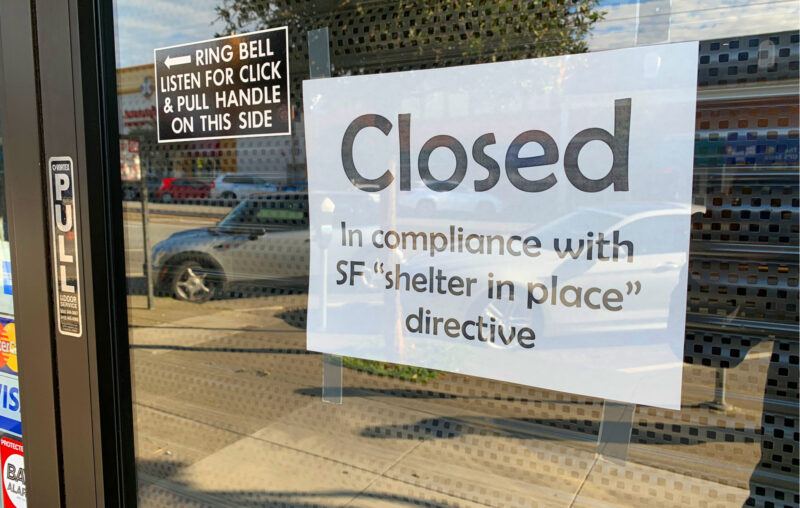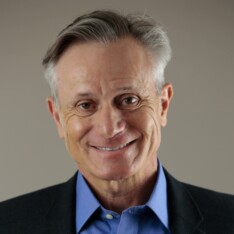Coase and Covid

Despite claims to the contrary, the case for most of the covid-related, government-orchestrated interventions was never made with scientific rigor. People accepted too quickly the need for mandated school and business closures, social distancing, mask-wearing, sheltering in place, and other nonpharmaceutical interventions (“NPI”s).
We do not here refer to the quality of the epidemiology, virology, or other physical sciences that served as justification for these mandates. Nor do we have in mind the various statistical models used to predict fatalities. Our complaint is that an important economic aspect of contagious diseases and government responses was largely ignored. The cost of this ignorance might well prove to be astronomical.
Two Key Assumptions
The case for mandated NPIs rests on two key assumptions. And while both initially seem to be sound, only the first assumption withstands scrutiny.
The first assumption is that every individual is a likely source of pollution. Just as a factory smokestack emits into the nearby atmosphere particulates that can damage the health of third parties who inhale them, each individual in this time of covid is likely to do the very same. That the coronavirus differs in its specific physical properties from the likes of sulfur dioxide is immaterial: inhaling either particulate can be very harmful.
The second assumption, unlike the first, is highly questionable. It is that the only, or at least the best, way to protect individuals from harm is through collective action orchestrated by government. Just as the best way to protect us from breathing in air polluted by smokestacks is for government to compel factories to reduce the amount of sulfur dioxide they emit into the air, the best way to protect us from breathing in air polluted by each other is for government to compel all of us to reduce the amount of coronavirus we emit into the air.
Thus, government mandates pollution controls on factories and NPIs on people.
Ronald Coase and the Bilateral Nature of Harms
To see the problem with this second assumption, let’s take a long digression into some economics of property rights.
The problem with this second assumption was identified 60 years ago by the great Nobel-laureate economist Ronald Coase (1910-2013). Among the many profound insights in Coase’s seminal 1960 paper, “The Problem of Social Cost,” is the recognition that the harms we human beings inflict on each other are always bilateral.
By “bilateral” Coase meant simply that when one person suffers some harm from an action committed by another person, each of these two people is involved in the harm. Jones cannot harm Smith unless Smith is in a position to suffer harm as a result of Jones’s action. So stated, Coase’s point seems utterly trivial.
Yet exploring the implications of this reality, as Coase did, produces deep economic insight. Because Jones cannot harm Smith unless Smith is in a position to be harmed by Jones, in principle Smith can reduce, or even escape, the harm he suffers from Jones by removing himself from a position in which he experiences consequences of Jones’s actions.
Are you kept awake at night by your neighbor Tom practicing his tuba? You wouldn’t be if you lived elsewhere. Is Tom annoyed when you persuade the building manager to order him to stop practicing his tuba at midnight? Tom would suffer no such annoyance if he lived alone in a house far from neighbors.
The point here is not to say that you are as much to blame as is Tom for your being kept awake by his midnight tuba practice sessions. Rather, the point is that your choices, and not only Tom’s, play a role in your suffering this annoyance. Assignment of blame – or, more formally, assignment of legal liability – requires an assessment of the property rights that you and Tom each have in the air that you both share.
Does each tenant possess the right not to have the air in his or her unit vibrated noisily at night? If so, Tom is in the wrong to use his tuba in a way that keeps you awake at night. Or does no tenant possess this right? If so, you’re in the wrong to complain about Tom’s midnight tuba playing.
Each activity here – playing a musical instrument and sleeping – is perfectly innocent. Also, neither party intends to harm the other. Instead, we have an innocent conflict over the use of a scarce resource, namely, air space in an apartment building. So what to do?
In practice, people in the position of you and Tom typically go to court. (It could be a formal court of law, or, as is more probable in this example, the informal ‘court’ presided over by Lou, the building manager.) The court – which, let us presume, is impartial – hears your complaint along with Tom’s defense. It then renders a decision.
In this case the decision will certainly be in your favor. The reason is that the court will know that most people have a reasonable expectation of being able to sleep at night undisturbed by avoidable noises emitted by neighbors. Although the court might not be consciously aware of the full details of its reasoning, it will understand that the cost that Tom must endure to avoid playing his tuba at night is less than the cost that you must endure if he doesn’t. If the court were to rule in favor of Tom, you’d practically be compelled to move to another apartment or to install expensive sound-proofing in your walls and ceiling – meaning that you’d have to incur a cost much higher than the cost that Tom incurs by not practicing on his tuba at night.
In short, the ‘correct’ decision is the one that resolves the conflict over the use of scarce airspace at what is likely the lowest cost. Although you could solve the problem by moving or installing soundproofing, the responsibility is on Tom to solve it by keeping quiet at night.
Now change the example. Suppose that you knowingly – say, because the price is low – rent an apartment that shares a wall with a tuba manufacturing plant that tests its tubas 24/7. Soon you find yourself unable to sleep. You take the tuba factory to court. After telling you that you should have known what you’re getting into by renting such an apartment, the court will rule for the factory. Whether the court articulates it or not, an important justification for this ruling is that the cost to you of finding another apartment is lower than the cost to the tuba producer of building, and relocating to, another plant.
While in fact the problem could be solved by having the tuba producer move to another plant, in this second example the lowest cost solution is for you to move to a quieter apartment, so the court won’t order the tuba factory to lock down.
Mandated NPIs Are Not the Only Option
Now back to covid. An implicit assumption undergirding the mandated NPIs is that ordering people to be confined at home and “socially distant” from each other, despite the resulting massive disruption of economic and social activities, is the lowest cost means of protecting individuals from covid. But even if we grant here that mandated NPIs are an effective means of reducing the physiological harm caused by covid, they are not the only means of achieving this worthwhile outcome. And so, because mandated NPIs are not the only means, they are justified only if they are the means that likely cost the least.
In a follow-up essay we will argue that the option of relying on individuals each to protect himself or herself from covid was too quickly dismissed, to the extent that this option was considered at all. We’ll make the case that, certainly in principle and perhaps also in practice, the best way to deal with covid is to rely on decentralized individual decision-making rather than on government-orchestrated collective action.












